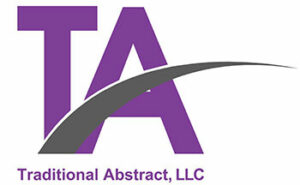Things to Know About 1031 Exchange
This is a brief overview of five key points about 1031 exchanges. Traditional Abstract provides 1031 exchange in Allentown, Lehigh Valley, Easton, PA, Bethlehem, PA, Nazareth, PA and surrounding regions.
Definition and Purpose: A 1031 exchange, also known as a like-kind exchange or a Starker exchange, refers to a section of the U.S. Internal Revenue Code (Section 1031) that allows investors to defer capital gains taxes on the sale of certain types of property, as long as they reinvest the proceeds into a similar property. The primary purpose of a 1031 exchange is to encourage investment and economic growth by deferring taxes that would otherwise be due upon the sale of investment property.
- Eligible Properties: To qualify for a 1031 exchange, the properties involved must be of “like-kind.” This term is broadly interpreted and typically includes real estate properties used for business or investment purposes. However, there are some limitations, such as the exclusion of personal residences or properties held primarily for sale.
- Timing and Deadlines: One of the most critical aspects of a 1031 exchange is adhering to strict timing requirements. The replacement property must be identified within 45 days of the sale of the relinquished property, and the exchange must be completed within 180 days. These deadlines are firm and failure to meet them can result in the disqualification of the exchange and the immediate taxation of capital gains.
- Qualified Intermediary (QI): To facilitate a 1031 exchange, investors typically work with a qualified intermediary (QI) who acts as a neutral third party. The QI holds the proceeds from the sale of the relinquished property and uses them to purchase the replacement property on behalf of the investor. This intermediary role is crucial to maintaining the tax-deferred status of the exchange.
- Tax Implications: While a 1031 exchange allows investors to defer capital gains taxes, it’s essential to understand that the taxes are not eliminated entirely. Instead, they are deferred until a future date when the replacement property is sold without being exchanged. At that point, capital gains taxes will be due based on the difference between the sale price of the replacement property and its adjusted basis.
Understanding these key points is crucial for investors considering a 1031 exchange to defer taxes and maximize their investment potential in real estate. Consulting with a tax advisor or real estate professional experienced in 1031 exchanges can provide further guidance tailored to individual circumstances. Should you have any questions, feel free to give us a call.

